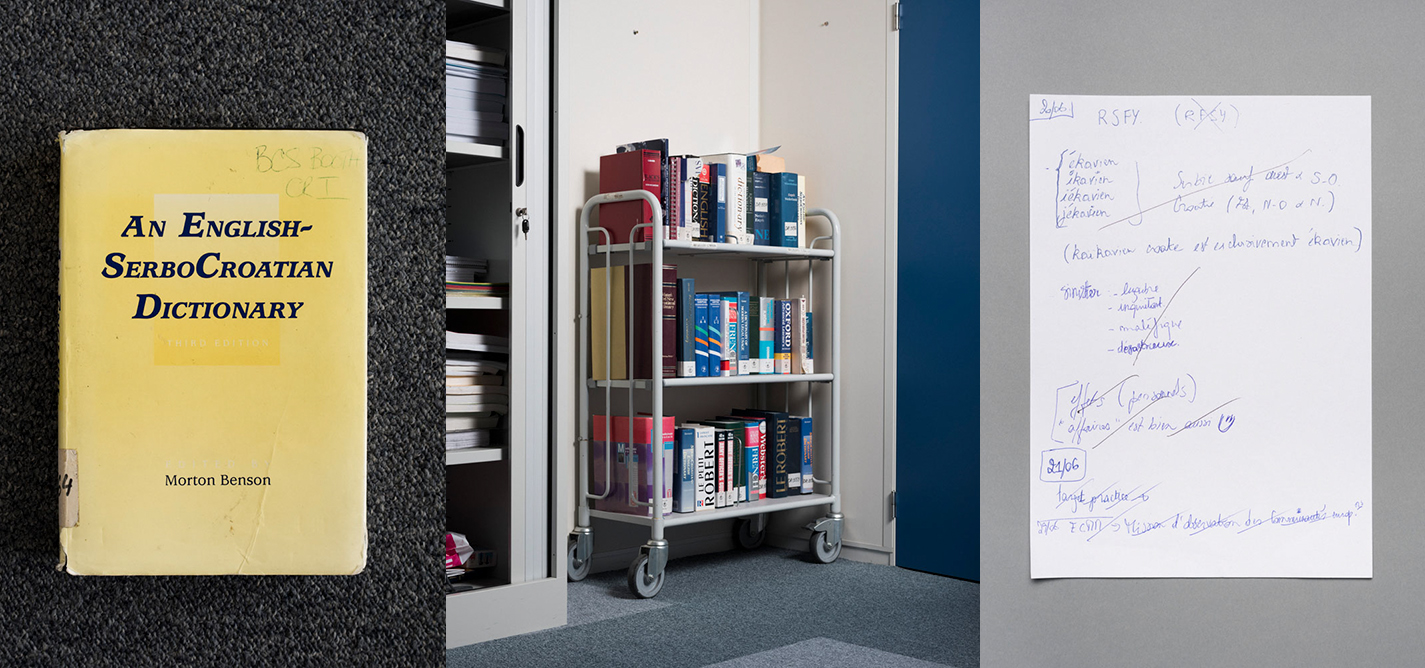
ICTY through the ears of the interpreters
Being the voice of war criminals.
“In the Balkans we might have been enemies, but in The Hague we tried not to let the war come between us.”
"Often they will also assert that the interpretation is not completely accurate and offer to help. That makes me furious, and I want to shout into my microphone."
Elmedina Podrug
Jorie Horsthuis
Jorie Horsthuis (1981, Amsterdam) is a Dutch journalist and political scientist. She writes about politics, justice and social issues. She has traveled many times to the Balkans for her work.
This story was originally written in English.